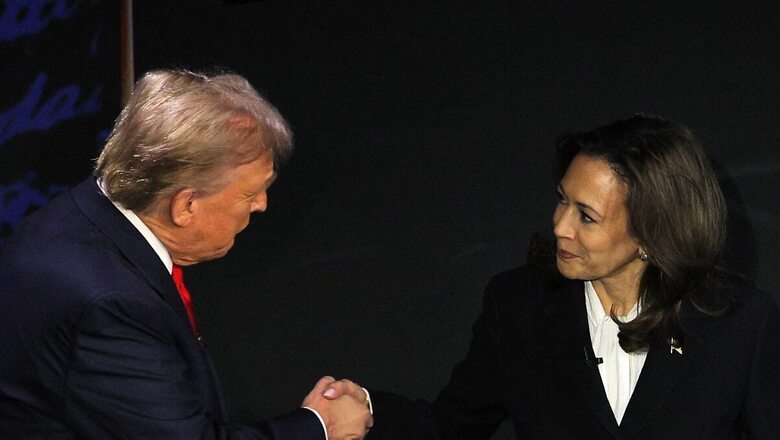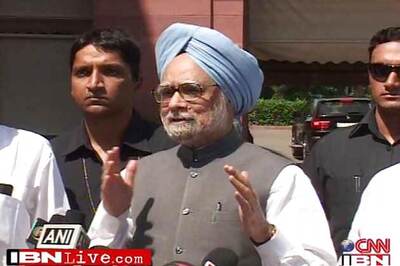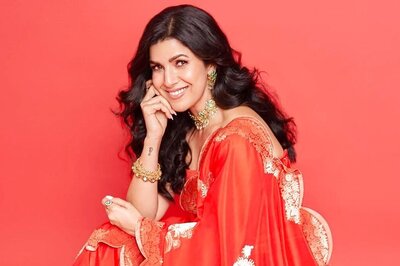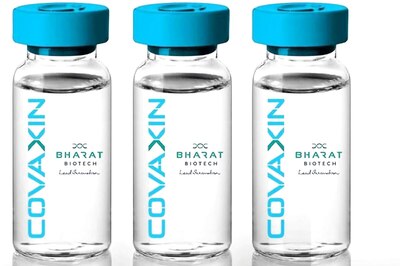
views
Democratic candidate Kamala Harris challenged Republican rival Donald Trump with pointed attacks on his fitness for office, support of abortion restrictions, and legal issues during Tuesday’s debate. Harris, a former prosecutor, took control early on, repeatedly irritating Trump, who responded with visibly angry retorts.
Handshake
As the debate commenced at the National Constitution Center in Philadelphia, body language became a focal point of analysis. Harris initiated a handshake, a gesture of civility that Trump seemed hesitant to reciprocate. “It was a power move,” said body language expert Mark Bowden, referring to Harris’ pursuit of Trump for a handshake. “I don’t think he was expecting that.”
This moment set the tone for the evening, with Harris embodying a message of unity while Trump’s reluctance suggested a more combative stance. Throughout the debate, Trump frequently avoided making direct eye contact with Harris, which analysts interpreted as a sign of discomfort or disrespect.
Tension and Confidence
Harris appeared visibly tense at the beginning, with noticeable signs of nervousness in her throat and neck. However, as the debate progressed, she regained her composure and confidence. In contrast, Trump started off more relaxed but displayed his characteristic idiosyncrasies, such as pursing his lips when confronted with statements he found disagreeable.
Both candidates raised their voices during the debate. Harris, turned towards her opponent as she spoke, at one point appearing to scold him. Trump mostly looked straight ahead. “Their approaches were very different,” said behavioral scientist Abbie Marono.
“He didn’t address her; he didn’t orientate toward her when he was speaking … She was a little antagonistic towards him, but she was also very emotionally responsive towards him,” he was quoted as saying by Reuters. When Trump accused Harris of being a “Marxist,” she responded with incredulity, visibly expressing disbelief at the accusation. This moment highlighted her willingness to challenge Trump openly, contrasting with his tendency to avoid direct engagement. Harris’s gestures and eye contact demonstrated her readiness to confront Trump head-on.
Humor as a Weapon
Harris employed humour effectively during the debate, particularly when Trump made outlandish claims about immigrants, according to the US–based outlet Politico reported. Her laughter served not only to undermine Trump’s argument but also to showcase her confidence in addressing absurdity with levity. This technique, reminiscent of courtroom strategies used by seasoned lawyers, allowed her to deflate Trump’s more serious assertions.
As the debate concluded, the candidates’ contrasting styles were evident. Trump exited the stage abruptly without acknowledging Harris, a stark departure from the handshake that initiated the evening. According to the experts, this behaviour reinforced the divide between the two candidates and underscored the contentious nature of their rivalry.
CNN poll
A CNN poll of debate watchers shows registered voters are nearly split on which candidate better understands their issues. Following Tuesday’s debate, 44% of viewers believe Kamala Harris understands their problems better, compared to 40% for Donald Trump. This represents a shift from before the debate, when 43% favored Trump and 39% favored Harris.
Despite this, Trump leads Harris by 20 points on handling the economy, with 55% supporting him compared to 35% for Harris. This margin is slightly wider than before the debate. The poll, which reflects the opinions of debate watchers rather than the broader electorate, found that 82% of viewers felt the debate did not impact their presidential choice. Fourteen percent reconsidered but did not change their minds, while 4% had their decision swayed.
(With agency inputs)



















Comments
0 comment